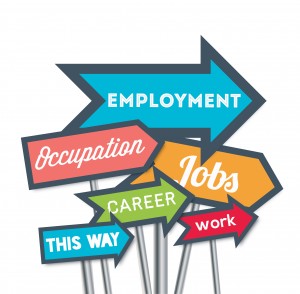Join our online community and be inspired to achieve your goals!
VIEW OUR FACEBOOK PAGEHow to get a job with no experience

It’s the old catch 22 situation – how to get a job without experience when you can’t get experience without a job. The easiest way to overcome this issue is to gain the experience you need – easier said than done huh? This problem doesn’t just affect recent graduates, it also affects immigrants, people who are changing careers, and those trying to re-enter the workforce after a period off. Most job ads specify some kind of experience required – even for entry level positions – so how can you get around this?
- Volunteer: the best way to gain experience is through volunteering or internships (paid or unpaid), which is especially so if your career area is very competitive. Often companies offering internships will employ people that show promise at the end of their term since they know what you have to offer and you’ve proven yourself during the period you’ve worked there. Even if you have to work for free, it is important to dedicate this time even if it doesn’t result in a job offer, because now you have some experience that you can add to your resume.
- Network: one of the best ways to get a job with no experience is through your networks. Try to network with people that you’d like to work for, and at local community, or relevant industry events. You may not land your dream job because of your networking, but it may help you get an interview or introduction that you wouldn’t have otherwise.
- Identify transferrable skills: it can be a challenge when you don’t have the ‘listed experience required’ but here’s where you need to think outside the square. Think about all your transferrable skills and demonstrate to the employer why they matter. You need to convince them that you’d be an asset in the role. List all the skills that might be valuable in the role you’re aiming for. Think about skills you’ve gained working in part time roles during school or university, while studying, in volunteer roles, and even during times you helped family or friends. Think about communication like writing, training people, preparing and facilitating presentations; computer skills such as proficiency with a variety of applications or operating systems (Windows / Mac), typing speed, blogging experience, digital content management, graphic design, use of spreadsheets, database skills etc.; as well as other skills such as problem solving; research and analysis; numerical; creativity etc.
- Articulate your achievements: show the employer how valuable you are by listing all your achievements. Even in part time completely unrelated roles, you can identify things that you achieved to demonstrate your work ethic and dedication. Volunteer work will help here because you can show relevant achievements, but importantly you’re also demonstrating passion. Don’t forget formal awards such as an employee of the month or academic awards received. Even high school competitions can be included if the results were good and you’re a recent school leaver.
- Showcase your work: if it’s a creative field you’re trying to break into, you could create a portfolio. As a writer you could start a blog or write some sample articles or content. As a graphic designer, you could create some designs to show potential employers. As a service provider, you could volunteer your services for free for family or friends and document the process and eventual outcome to include in your portfolio.
- Revamp your resume: traditional resumes are written in chronological order with your most recent role first. If you don’t have a lot of work experience, this can be tricky – so you could consider a functional format. A functional resume focuses on skills which requires identifying and articulating those transferrable skills in order to demonstrate your capability.
Do whatever you can to get an interview and once there, nail it. Companies really value cultural fit these days so show the employer what you have to offer – make up for your lack of experience with passion and commitment. If the recruiter likes you and sees how hard you’ve worked to get there, your experience (or lack of) might just become a little less relevant.
Are you struggling to demonstrate how you can add value in roles where you have very little experience? Would you like help maximising your experience and qualifications to give yourself a better chance at your dream job? If so, please see our Resume, Cover Letter and Selection Criteria Writing services.

